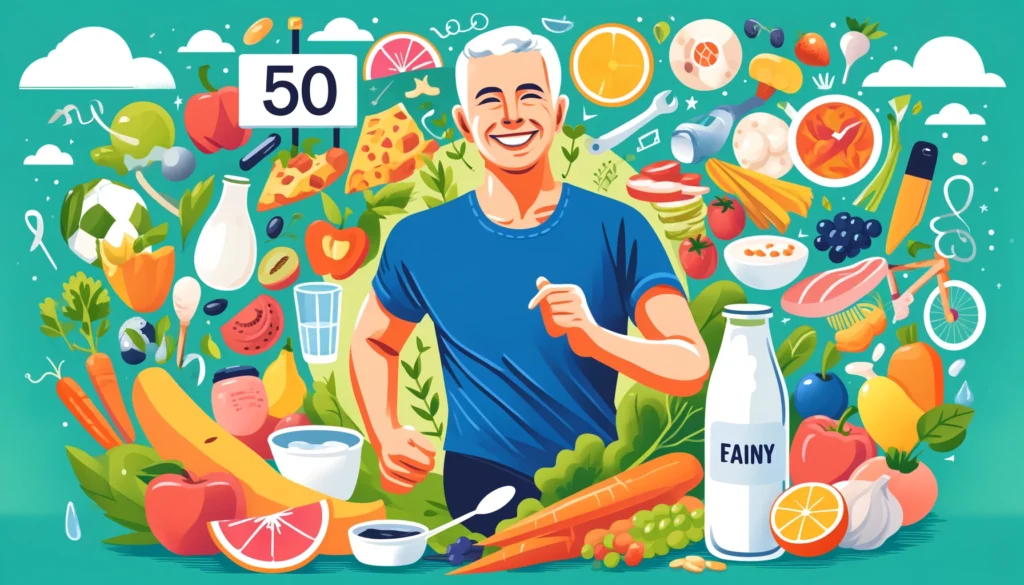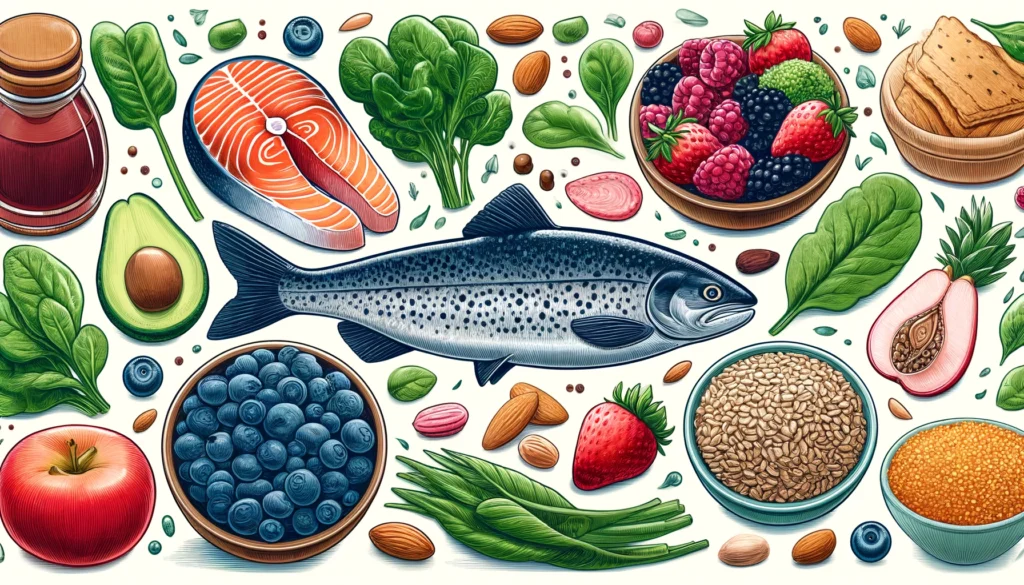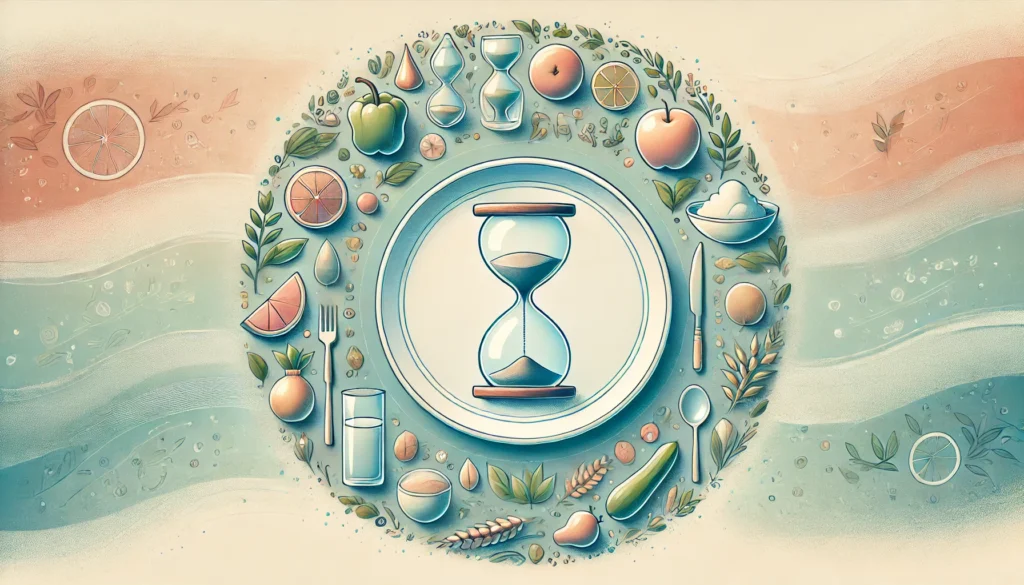Date: 5-25-2024
Entering your 50s is a significant milestone. This decade often brings a newfound perspective on life, a reflection on past experiences, and an increased focus on health and well-being. One of the most crucial aspects of maintaining good health in your 50s is adopting a healthy diet. This article explores why it is important to eat healthy during this stage of life, detailing the numerous benefits and offering practical tips for incorporating nutritious foods into your daily routine.
The Aging Process and Nutritional Needs
As we age, our bodies undergo various physiological changes that can impact our nutritional needs and overall health. Here are some key factors to consider:
- Metabolic Rate Decreases: Metabolism naturally slows down with age, making it easier to gain weight and harder to lose it. A slower metabolism means your body needs fewer calories, so choosing nutrient-dense foods becomes essential to avoid weight gain and ensure you’re getting the necessary nutrients without excess calories.
- Muscle Mass Declines: Sarcopenia, the age-related loss of muscle mass and strength, begins to accelerate in the 50s. Adequate protein intake and regular physical activity, including resistance training, are vital to counteract this decline and maintain muscle function and overall mobility.
- Bone Density Reduces: The risk of osteoporosis and fractures increases with age due to the natural decline in bone density. Nutrients like calcium, vitamin D, and magnesium become even more critical to support bone health and prevent bone-related conditions.
- Digestive Changes: The digestive system can become less efficient, leading to issues like constipation, reduced nutrient absorption, and slower digestion. A diet rich in fiber, probiotics, and adequate hydration can help maintain digestive health.
Key Nutrients for Your 50s
To address these changes and maintain optimal health, focusing on specific nutrients is essential:
- Protein: Adequate protein intake helps preserve muscle mass and strength. Incorporate lean meats, fish, eggs, dairy products, legumes, and plant-based proteins like tofu and tempeh into your diet.
- Calcium and Vitamin D: These nutrients are crucial for bone health. Dairy products, leafy greens, fortified plant milks, and exposure to sunlight can help you meet your calcium and vitamin D needs.
- Fiber: A diet high in fiber supports digestive health and can help manage weight by promoting satiety. Whole grains, fruits, vegetables, legumes, and nuts are excellent sources of fiber.
- Omega-3 Fatty Acids: These healthy fats support heart health and reduce inflammation. Include fatty fish like salmon, flaxseeds, chia seeds, and walnuts in your diet.
- Antioxidants: Antioxidants combat oxidative stress and inflammation, which are linked to aging and chronic diseases. Colorful fruits and vegetables, such as berries, tomatoes, and leafy greens, are rich in antioxidants.
- B Vitamins: B vitamins, especially B12, are vital for energy production and cognitive function. Since absorption can decline with age, ensure you’re getting enough through animal products, fortified foods, or supplements if needed.
Health Benefits of Eating Healthy in Your 50s
Adopting a healthy diet in your 50s offers a multitude of benefits that can enhance your quality of life and longevity:
- Weight Management: A balanced diet can help you maintain a healthy weight, reducing the risk of obesity-related conditions such as type 2 diabetes, heart disease, and certain cancers.
- Heart Health: A diet rich in fruits, vegetables, whole grains, lean proteins, and healthy fats supports cardiovascular health. Reducing sodium, saturated fats, and added sugars can further protect your heart.
- Bone Health: Adequate intake of calcium, vitamin D, and other bone-supporting nutrients helps prevent osteoporosis and fractures, keeping you active and independent.
- Digestive Health: High-fiber foods promote regular bowel movements and prevent constipation, while probiotics support a healthy gut microbiome.
- Mental Well-being: Nutrient-dense foods provide essential vitamins and minerals that support brain health, potentially reducing the risk of cognitive decline and improving mood and mental clarity.
- Chronic Disease Prevention: A healthy diet can lower the risk of chronic diseases such as diabetes, hypertension, and certain cancers. It can also help manage existing conditions and reduce the need for medications.
- Energy and Vitality: Eating a balanced diet provides the energy needed to stay active, engaged, and enjoy life to the fullest. Nutrient-rich foods support sustained energy levels and overall vitality.
Practical Tips for Eating Healthy in Your 50s
Incorporating healthy eating habits into your daily routine doesn’t have to be complicated. Here are some practical tips to help you get started:
- Plan Balanced Meals: Aim for balanced meals that include a variety of food groups. Fill half your plate with fruits and vegetables, a quarter with lean protein, and a quarter with whole grains.
- Stay Hydrated: Drink plenty of water throughout the day to stay hydrated and support digestion. Herbal teas and water-rich foods like fruits and vegetables can also contribute to your hydration needs.
- Limit Processed Foods: Reduce your intake of processed and packaged foods that are high in added sugars, sodium, and unhealthy fats. Opt for whole, unprocessed foods whenever possible.
- Snack Smart: Choose healthy snacks like fresh fruit, nuts, yogurt, or whole-grain crackers to keep your energy levels stable between meals.
- Cook at Home: Preparing meals at home allows you to control the ingredients and make healthier choices. Experiment with new recipes and cooking methods to keep things interesting.
- Read Labels: Pay attention to nutrition labels when shopping for packaged foods. Look for items with lower sodium, added sugars, and saturated fats.
- Practice Portion Control: Be mindful of portion sizes to avoid overeating. Using smaller plates and bowls can help control portions and prevent overindulgence.
- Seek Professional Guidance: Consider consulting a registered dietitian or nutritionist for personalized advice and meal planning tailored to your specific health needs and goals.
Conclusion
Eating healthy in your 50s is a powerful tool for enhancing your health, well-being, and longevity. By focusing on nutrient-dense foods and adopting balanced eating habits, you can support your body’s changing needs, prevent chronic diseases, and enjoy a vibrant, active life. Remember, it’s never too late to make positive changes to your diet and reap the benefits of a healthy lifestyle. Embrace this decade with a renewed commitment to your health and nourish your body with the nutrients it deserves.



